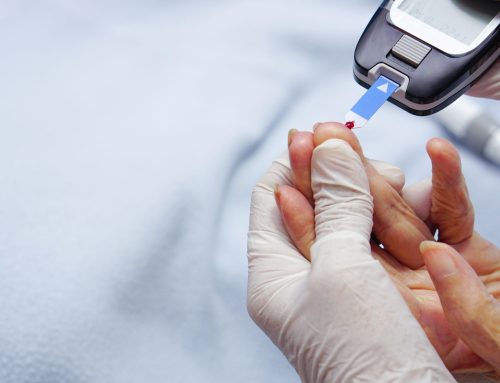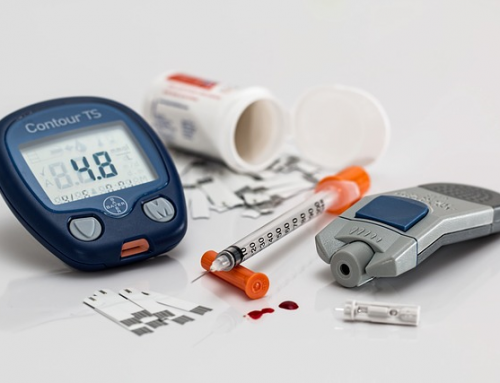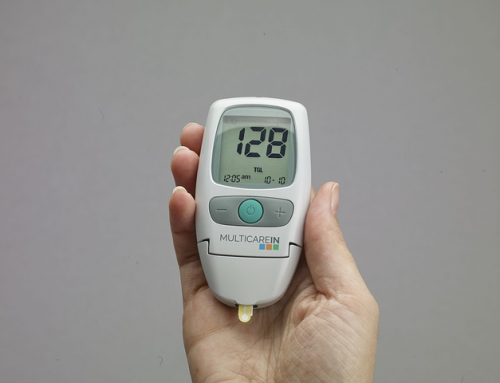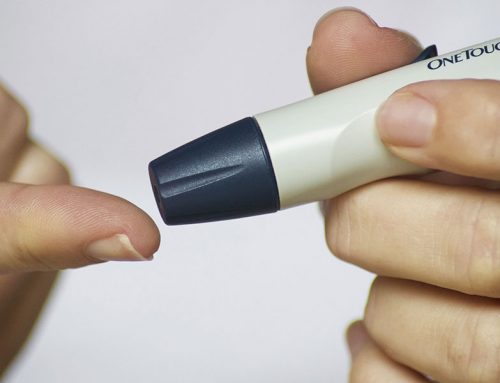
The level of oxidative stress is elevated in diabetes, and diabetes often induces mitochondrial dysfunction in the retina. Supplementation with Coenzyme Q10 provides antioxidant protection against the harmful effect of free radicals and improves bio-energetic function. Depicted here: a representation of a single mitochondrion.
The mitochondria – those little bean-shaped organelles inside the cells – are the primary source of cellular energy. Coenzyme Q10, both the Coenzyme Q10 the body synthesizes and the Coenzyme Q10 we get in our food and in supplements, is fundamental to the cellular energy production process. That means that Coenzyme Q10 is fundamental to the normal functioning of all tissues that are dependent on energy metabolism. The retina is an example of such tissue.
Why is Coenzyme Q10 important for patients with diabetic retinopathy?
- The number of diabetes patients diagnosed with diabetic retinopathy continues to grow.
- We need new methods to prevent and treat diabetic retinopathy, which is a complication of diabetes that is caused by oxidative damage to the blood vessels in the retina.
- Oxidative stress – the overproduction of harmful free radicals, also known as reactive oxygen species – is perhaps the primary cause of diabetic retinopathy [Calderon 2017].
- Coenzyme Q10 supplements at higher than normal doses (400- 500 milligrams per day) can decrease oxidative stress and increase antioxidant enzyme activity in patients [Sanoobar 2013].
- Coenzyme Q10 supplements in the form of ubiquinone improve mitochondrial homeostasis and diminish the breakdown of the energy production process [Rodriguez-Carrizalez 2016].
Antioxidant effect of CoQ10 on mitochondrial function in the retina
Researchers at the University of Guadalajara in Mexico investigated the antioxidant effect of adjunctive Coenzyme Q10 treatment on mitochondrial function in blood cells in patients with diabetic retinopathy [Rodriguez-Carrizalez 2016].
Their rationale for using Coenzyme Q10 as an adjunctive treatment was based on the following points [Rodriguez-Carrizalez 2016]:
- In chronic hyperglycemia – high blood sugar – the antioxidant levels are known to be diminished. Accordingly, there is increased oxidative stress in the diabetic retina.
- In the hyperglycemic state, the retina cells are characterized by diminished bio-genesis of mitochondria and decreased numbers of mitochondria.
- Also in the hyperglycemic state, there are harmful changes in the flow of the blood in the retina: increased blood viscosity, altered membrane permeability, and increased adhesion of the red blood cells to the endothelial cells. The consequence is increased membrane rigidity and decreased blood flow through the membranes.
- Coenzyme Q10 is known to increase the resistance of LDL-lipoproteins to oxidative damage in the form of lipid peroxidation [Mohr 1992].
Guadalajara study design: CoQ10 and mitochondrial function
Patients randomly assigned to the active treatment group took 400 milligrams of Coenzyme Q10 (ubiquinone form) daily for six months. Patients randomly assigned to a control group received matching placebos daily for six months [Rodriguez-Carrizalez 2016].
Guadalajara study results: CoQ10 and mitochondrial function
The baseline submitochondrial membrane fluidity was significantly diminished in the patients with diabetic retinopathy compared with individuals with normal submitochondrial membrane fluidity values.
Six months of adjunctive treatment with 400 milligrams of Coenzyme Q10 (ubiquinone) significantly improved the diabetes patients’ submitochondrial membrane fluidity values. In the placebo group, the diabetes patients’ values remained unchanged and abnormally low.
The University of Guadalajara study shows that Coenzyme Q10 supplementation significantly improved the fluidity of the submitochondrial particles in platelets and the cellular membrane fluidity in red blood cells.
In the study, Coenzyme Q10 supplementation also significantly improved the function of the ATPase enzyme in the synthesis of ATP energy in patients with diabetic retinopathy.
Coenzyme Q10 is a safe adjunctive treatment for diabetics
There were no significant differences in baseline and final blood glucose readings in the Coenzyme Q10 treatment group. Thus, Coenzyme Q10 in daily doses of 400 milligrams does not affect the diabetes patients’ glycemic control [Rodriguez-Carrizalez 2016].
The University of Guadalajara researchers concluded that Coenzyme Q10 represents an “economical, safe, attractive, and adjunctive alternative to improve or prevent” non-proliferative diabetic retinopathy [Rodríguez-Carrizalez 2016].
Sources
Calderon, G.D., Juarez, O.H., Hernandez, G.E., Punzo, S.M. & De la Cruz, Z.D. (2017). Oxidative stress and diabetic retinopathy: development and treatment. Eye (Lond)., 31(8):1122-1130. doi: 10.1038/eye.2017.64. Epub 2017 Apr 28.
Mohr, D., Bowry, V.W. & Stocker, R. (1992). Dietary supplementation with Coenzyme Q10 results in increased levels of ubiquinol-10 within circulating lipoproteins and increased resistance of human low-density lipoprotein to the initiation of lipid peroxidation. Biochim Biophys Acta, 26;1126(3):247-54.
Rodríguez-Carrizalez, A. D., Castellanos-González, J. A., Martínez-Romero, E. C., Miller-Arrevillaga, G., Román-Pintos, L. M., Pacheco-Moisés, F. P., & Miranda-Díaz, A. G. (2016). The antioxidant effect of ubiquinone and combined therapy on mitochondrial function in blood cells in non-proliferative diabetic retinopathy: A randomized, double-blind, phase IIa, placebo-controlled study. Redox Report: Communications In Free Radical Research, 21(4), 190-195. doi:10.1179/1351000215Y.0000000032
Sanoobar, M., Eghtesadi, S., Azimi, A., Khalili, M., Jazayeri, S., & Reza Gohari, M. (2013). Coenzyme Q10 supplementation reduces oxidative stress and increases antioxidant enzyme activity in patients with relapsing-remitting multiple sclerosis. The International Journal of Neuroscience, 123(11), 776-782. doi:10.3109/00207454.2013.801844
The information presented in this review article is not intended as medical advice and should not be regarded as such.









Leave A Comment